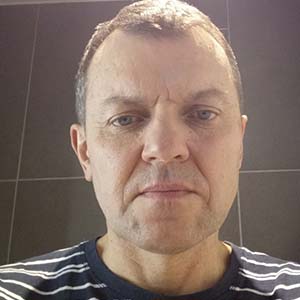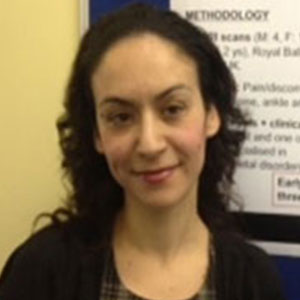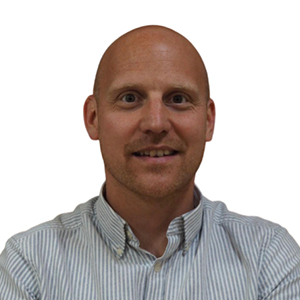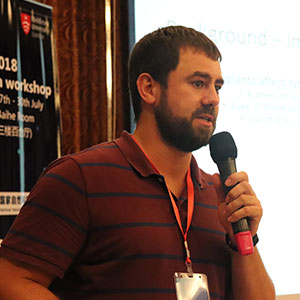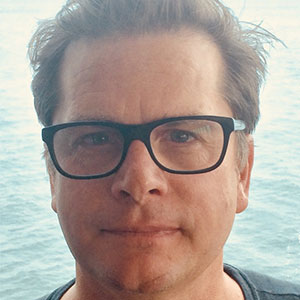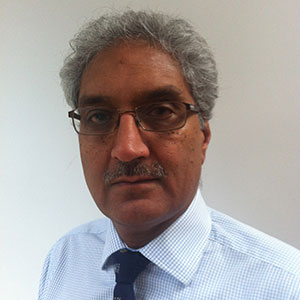Study options
- Starting in
- September 2025
- Location
- Charterhouse Square
- Fees
- Home: £10,350
Overseas: £20,000
EU/EEA/Swiss students
What you'll study
This programme is the longest-established Sports and Exercise Medicine post graduate programme in the country, with this specific route having obtained MACP accreditation in 2020. It will help you develop skills working within the multidisciplinary team and progress your medical skills and knowledge. You will build confidence through your academic studies, and reinforce your learning through active practice with patients.
You will be taught by experts and clinician-scientists on our staff who regularly work with elite athletes. Sports medicine is a collaborative discipline, and you will gain experience by working closely with medical doctors, physiotherapists, podiatrists and other sports medicine practitioners.
We have an international research profile in Sports and Exercise Medicine. You will be able to work with a wide variety of athletes and dancers, and thus build your research around groups in which you have a particular interest. Many students also go on to publish in peer-reviewed journals – which is a reflection of the quality of our student research output.
The Centre for Sports and Exercise Medicine is based within the William Harvey Research Institute at Queen Mary University of London's Faculty of Medicine and Dentistry. The School of Medicine and Dentistry is comprised of two world-renowned teaching hospitals, St Bartholomew’s and The Royal London, which make an outstanding contribution to modern medicine.
Structure
Sport and Exercise Medicine (MACP accredited route) is available to study to MSc and PG Diploma level, full-time for one year, or part-time over two years.
To achieve the diploma, you will need to complete 8 taught modules (120 credits) plus the clinical placement and the MSc, 9 taught modules plus both a research project (equivalent to three modules) and the clinical placement (180 credits).
For MSc and PGDip programmes, completion of a supervised 150 hours of clinical placement is required.
Undertaking a masters programme is a serious commitment, with contact hours being in addition to numerous hours of independent learning.
When coursework or examination deadlines are approaching, independent learning hours may need to increase significantly.
Each 15 credit taught module involves 120 hours of study, with the student receiving 30 contact hours (15 hours during the intensive, in person, weeks of teaching and 15 hours asynchronously) plus an expectation of 90 hours independent learning.
The part-time and variable mode options allow for the student to complete a reduced number of modules per semester. These options give the student the opportunity to balance study alongside clinical practice. It is important not to underestimate the amount of time that is required to study alongside work commitments.
Clinical placements
Clinical placement forms an integral part of the MACP accredited route. To meet the criteria of clinical expertise, outlined by the MACP, the student undertakes a minimum of 150 hours of directed mentored clinical practice. Within the module students will be required to manage a clinical caseload whilst receiving mentorship form a clinical mentor. A variety of models and tools may be used as part of the mentorship to achieve the best development of the individual student. Direct contact hours with the Clinical Mentor will include observation of the student assessing and managing patients in the practice setting. A summative assessment of the student is mandatory and will be completed by the Lead Clinical Mentor (a MACP member) and an MACP approved assessor. This will include a clinical examination of a new and follow up patient.
Compulsory/Core modules
This module provides the knowledge and skills to understand, design, and execute a variety of research projects. Understanding and applying for ethics approval is also covered. A range of statistical techniques essential to analyse quantitative research will be covered. This is a core module for physiotherapists and doctors.
Exercise Physiology is the study of how our bodies' structures and functions are altered when we are exposed to acute and chronic bouts of exercise. This module is designed to provide insight into how concepts of exercise physiology apply to i) training athletes and enhancing the athlete¿s sport performance and ii) improving and maintaining function in chronic disease patients and members of the general population. Topics covered within this module include musculoskeletal, cardio-respiratory and metabolic adaptations to exercise training and methods of fitness testing and application of physiological principles to different population groups.
This module has been developed to provide allied health professionals with the necessary knowledge, insight and exposure to develop their competencies as advanced clinical practitioners. The modules teaching will promote a high degree of clinical autonomy and complex decision making in partnership with individuals, athletes and the multi-disciplinary team.
This module builds upon the knowledge and practical skills gained in Sports Injury Assessment. The greater complexity of the knowledge provided gives the required level of understanding for the multiple paradigms that underpin the clinical assessment and reasoning of presenting injuries and subsequent management planning. The integration of different imaging modalities, and their rationale for been used, is explored. Topics will include the selection of imaging modalities by body site and pathology to aid in the diagnosis and monitoring of injury. At the core of the module will be the acquisition of practical skills in ultrasound scanning with a syllabus based on recommendations by the Faculty of Sports and Exercise Medicine. This module has an extensive clinical component.
Applied Principles of Injury Management in Dance and Football is taught by experts from the elite side of sports. The module will provide students with the ability to expand and employ the evidence based multidisciplinary approaches used in elite sport to prevent and manage injuries. These involve both expertise from medical staff as well as e.g. sports science, nutrition and psychology.
The Sports Injury Assessment module provides a sound knowledge of the anatomy and pathophysiology of soft tissue, bones and joints. It applies this knowledge to the formulation of a comprehensive detailed approach to clinical assessment of presenting injury. This module has an extensive clinical component, developing students critically evaluative skills.
The zero credit Clinical placement module forms an integral part of the MACP accredited MSc route for physiotherapists. To meet the criteria of clinical expertise, outlined by the MACP, the student undertakes a minimum of 150 hours of directed mentored clinical practice. Within the module students will be required to manage a clinical caseload whilst receiving mentorship form a clinical mentor. A variety of models and tools may be used as part of the mentorship to achieve the best development of the individual student. Direct contact hours with the Clinical Mentor will include observation of the student assessing and managing patients in the practice setting. A summative assessment of the student is mandatory and will be completed by the Lead Clinical Mentor (a MACP member) and an MACP approved assessor. This will include a clinical examination of a new and follow up patient.
Elective modules
This module provides an in-depth knowledge of the anatomy, biomechanics and common sports injuries of the foot, ankle and lower leg. It also provides an overview of tools available for biomechanical assessment of the lower limb and covers a range of diagnostic investigations that are used, with a specific emphasis on exercise induced leg pain.
Biomechanics is essential in understanding most musculoskeletal injuries mechanisms, risks and pre-/rehabilitation effectiveness. Biomechanical tools are additionally becoming more and more accessible and affordable to clinicians. The importance of understanding biomechanics in relation to sports and exercise medicine is therefore paramount. This module will give you a greater level of knowledge in relation to biomechanics, both in terms of its applications and its strengths/limitations. You will learn the key biomechanical principles. You will learn how to critically carry out biomechanical testing and assess output data. By the end of this module you will have the skills to perform biomechanical testing, critically analyse and review biomechanical output as well as published data.
Principles of Injury Management in Dance and Football is taught by experts from the elite side of sports. The module will provide students with an understanding of the evidence based multidisciplinary approaches applied in elite sport to prevent and manage injuries. These involve both expertise from medical staff as well as e.g. sports science, nutrition and psychology.
Assessment
- 100% Modules
- 0% Research project
The modules are assessed by a wide variety of methods, including:
- written exams
- coursework (essays, case histories)
Teaching
Teaching is delivered through a blended learning approach, which incorporates a mix of asynchronous online lectures and synchronous, in-person, face-to-face teaching – considered critical for the development of your practical, hands-on skills.
Intensive teaching weeks are staggered across two semesters – Semester 1 between September and Dec, and Semester 2 between January and April. Examination windows are in January for Semester 1 and May for Semester Two modules. The timetables for modules and examinations are likely to be finalised in September.
Further clinical teaching is delivered through observational and applied clinic attendance, which forms an integral part of all programme routes.
You will also be assigned an Academic Adviser who will guide you in both academic and pastoral matters.
—What I enjoy most about the course is the integration of mixed specialities. There is a huge learning curve from hands-on physiotherapy and sports input, which is both challenging and rewarding. There is also a very good multidisciplinary focus.
Sera Shoukro, MSc Sports and Exercise Medicine, 2014
Where you'll learn
Facilities
- Access to the Human Performance Laboratory (HPL) and its state-of-the-art physiological testing and motion analysis equipment
- Queen Mary’s comprehensive libraries, including our Postgraduate Reading Room
- Our new Graduate Centre: purpose-built study spaces and a roof-top common room with a terrace
- Access to many journals about sport and exercise medicine
- In-person teaching will take place within the SEM department of Mile End Hospital, with its own practical teaching space and lecture room facilities
About the Institute
William Harvey Research Institute
The William Harvey Research Institute (WHRI) places a high value upon training the next generation of researchers. We are part of the Faculty of Medicine and Dentistry at Queen Mary University of London, which is ranked joint seventh in the UK for the quality of our research (REF 2021).
Our primary research focus and excellence lies in our cardiovascular, inflammation and endocrine research themes. In addition, we achieve international excellence in critical care and perioperative medicine research. We aim to combine talents from different disciplines such as genomics, cell biology, and pharmacology, with translational bench-to-patient studies and large-scale clinical trials.
We are currently the largest pharmacological research institute in the UK University sector, and one of the largest in Europe. The Centre employs 530 clinicians and scientists from 45 countries.
Career paths
Successful alumni have gone on to further study at PhD level, to work in specialised roles in sports medicine and to hold pivotal positions in the field across the UK and internationally. Graduates include the Chief Medical Officers for Team Great Britain at the Beijing 2008 and London 2012 Olympic and Paralympic games, and the Greek team at Athens 2004.
- 93% of WHRI graduates are in employment or further study (2020/21)
- 88% of WHRI graduates in employment or study are in highly skilled work or graduate study (2020/21)
Fees and funding
Full-time study
September 2025 | 9 months
- Home: £10,350
- Overseas: £20,000
EU/EEA/Swiss students
Unconditional deposit
Home: Not applicable
Overseas: £2000
Information about deposits
Part-time study
September 2025 | 21 months
- Home: £5,200
- Overseas: £10,000
EU/EEA/Swiss students
Unconditional deposit
Home: Not applicable
Overseas: £2000
Information about deposits
Funding
There are a number of ways you can fund your postgraduate degree.
- Scholarships and bursaries
- Postgraduate loans (UK students)
- Country-specific scholarships for international students
Our Advice and Counselling service offers specialist support on financial issues, which you can access as soon as you apply for a place at Queen Mary. Before you apply, you can access our funding guides and advice on managing your money:
Entry requirements
UK
Degree requirements
A 2:1 or above at undergraduate level in a relevant subject.
The course is aimed at qualified doctors, physiotherapists and osteopaths. Applicants need at least one year of clinical experience. If you are a physiotherapist with an overseas qualification, you must be registered with the Health Professions Council.
Find out more about how to apply for our postgraduate taught courses.
International
English language requirements
The English language requirements for our programmes are indicated by English bands, and therefore the specific test and score acceptable is based on the band assigned to the academic department within which your chosen course of study is administered. Note that for some academic departments there are programmes with non-standard English language requirements.
The English Language requirements for entry to postgraduate taught and research programmes in the William Harvey Research Institute falls within the following English band:
Band 4: IELTS (Academic) minimum score 6.5 overall with 6.0 in each of Writing, Listening, Reading and Speaking
Please note, there are some postgraduate programmes with non-standard English language requirements in this Institute.
We accept a range of English tests and qualifications categorised in our English bands for you to demonstrate your level of English Language proficiency. See all accepted English tests that we deem equivalent to these IELTS scores.
Visas and immigration
Find out how to apply for a student visa.

